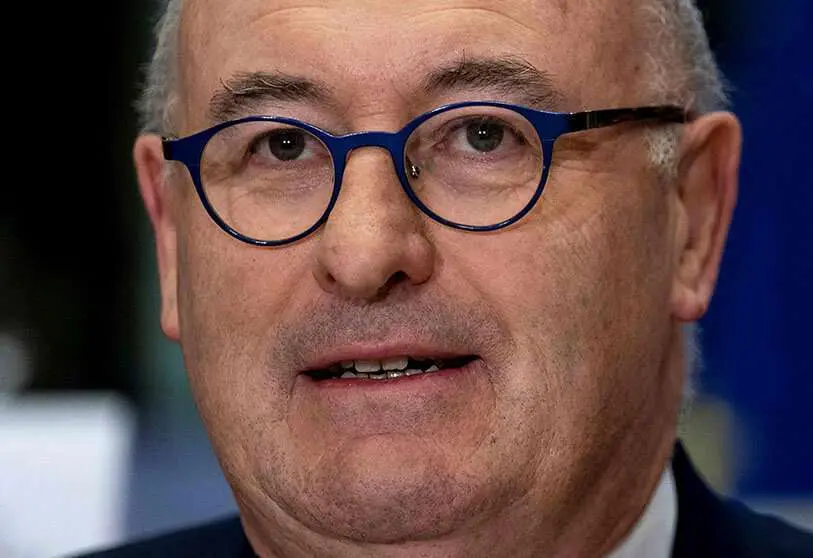How spoilt Ireland shakes up the European Commission

Ireland is one of the key players in the turbulent post-Brexit negotiations. It was rescued at the time when the financial crisis dealt the first major blow to a European Union that had seemed an impregnable fortress. It is also a tax haven, where the big American technology companies take refuge fiscally so as not to contribute on an equal footing to the contribution of their huge profits in other European countries. Now, moreover, the current tripartite government in Dublin, made up of Liberals, Conservatives and Greens, has led to the fall of Commissioner Phil Hogan, also Irish, to the position of the decisive Trade portfolio in the European Commission.
Hogan's mistake was to attend a dinner on 19 August at the Clifden Golf Club in Galway, which was attended by 81 people, well above the maximum of 15 that the Dublin government has limited to because of the COVID-19. This was considered serious enough for the Irish Taoiseach (Prime Minister), Micheál Martin, to dismiss the Minister of Agriculture, Dara Calleary, who also attended the same meeting.
Until now, the post of European Commission Commissioner, whatever the origin, was considered to be fully independent of his country and government of origin. It should be remembered that the Polish government was never able to remove the former prime minister, Donald Tusk, from his post as commissioner. Tusk was even appointed president of the European Council and served for the statutory five years despite firm opposition from Warsaw.
This was not the case this time, as Dublin's pressure on the president of the European Commission, Ursula von der Leyen, proved irresistible. Admittedly, it is Hogan himself who claims to have voluntarily resigned from the post, despite having presented his German boss with a bulky dossier of all the movements he made in Ireland between 31 July and 22 August, including the hospital tests he undertook voluntarily which proved negative. But Von der Leyen not only failed to lift a finger to defend him, but even sent a warning to his commissioners "to be particularly vigilant about compliance with national and regional rules and recommendations".
The first consequence of this episode is that the supposed independence of the commissioners from their home countries and governments is called into question. The second, and no less important, is that the post left vacant by Hogan was of vital importance, both because he handled the negotiations of his very broad field of action with the London government for future relations with the EU as of 1 January 2021 and because he was also in command of the European "troops" in the trade war unleashed by the US president, Donald Trump. Precisely last week he had achieved the first reduction in tariffs with the United States in the past two decades, while his resignation, clearly more forced than voluntary, was submitted when he had made a commitment to the United States regarding the thorny issue of state aid to Airbus and Boeing, a decisive step towards easing trade relations that had only worsened since his current tenant entered the White House.
There is now a lot of speculation. Ireland will have to put forward one or two candidates, for Von der Leyen to choose. The a priori favourites are the current foreign minister, Simon Coveney, and the former ambassador to Washington, David O'Sullivan. Dublin is within its rights, as is Ursula von der Leyen, not to give Hogan's successor the same portfolio, a gesture which would in that case entail a reshuffle of its College of Commissioners, but which would have the advantage of offsetting the bitter feeling that national governments can handle it at will. For the time being, he has instructed his Vice-President, Valdis Dombrovskis, who is responsible for the economic area, to take over the Trade portfolio as well. It will be a relatively long period, because in addition to the new commissioner being accepted by the president, he will need to be examined by the members of the European Parliament, a trance which has proved to be far from a mere and comfortable procedure.
What is clear is that the crisis could not have been more inopportune, while it is supposed to be a great satisfaction in the current tripartite Irish coalition government, which had been seeking to end Hogan's political career since he came to power. Hogan, who was even making a name for himself as an effective executive in Brussels, has also seen any major aspirations he may have in the European Community nipped in the bud.

